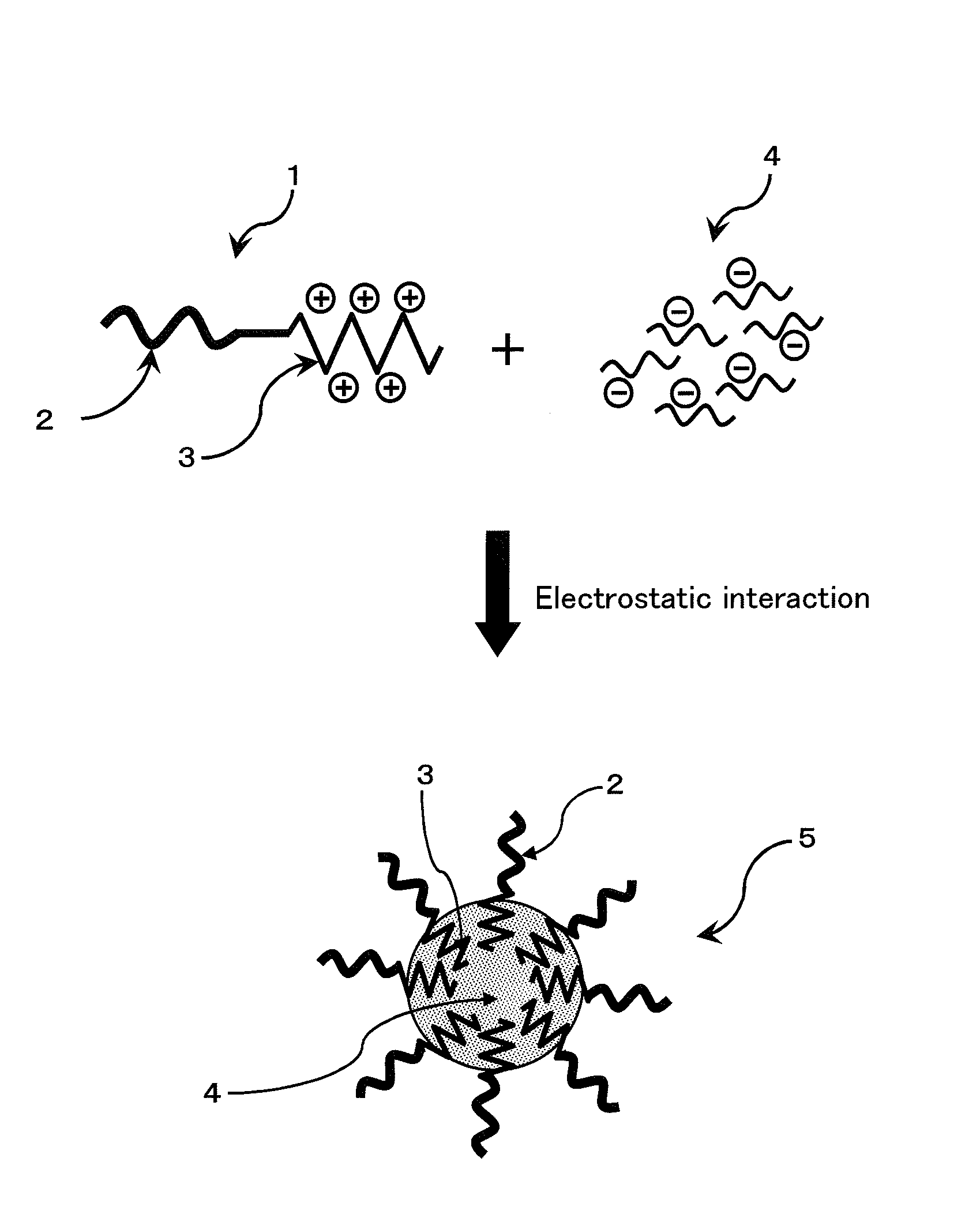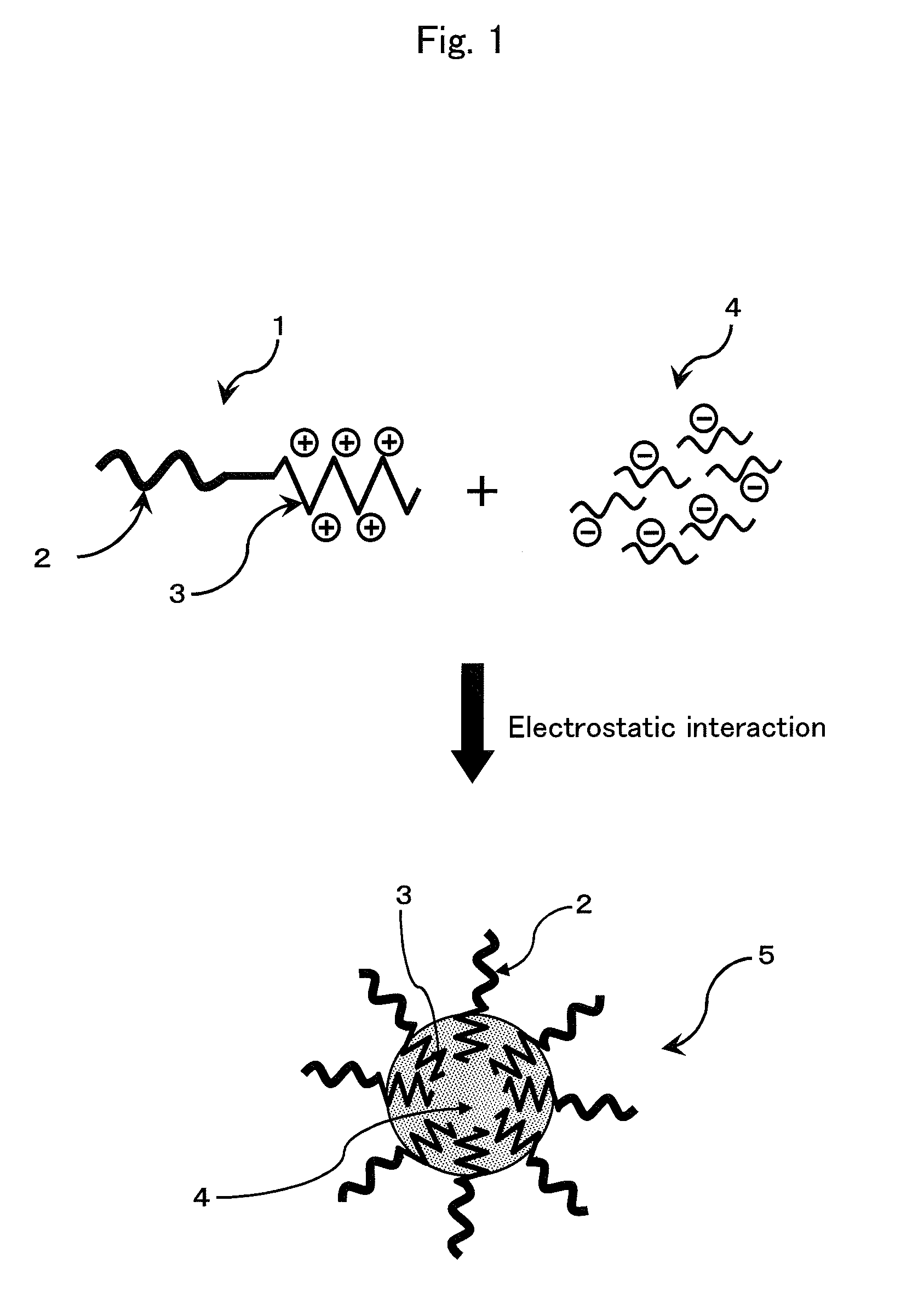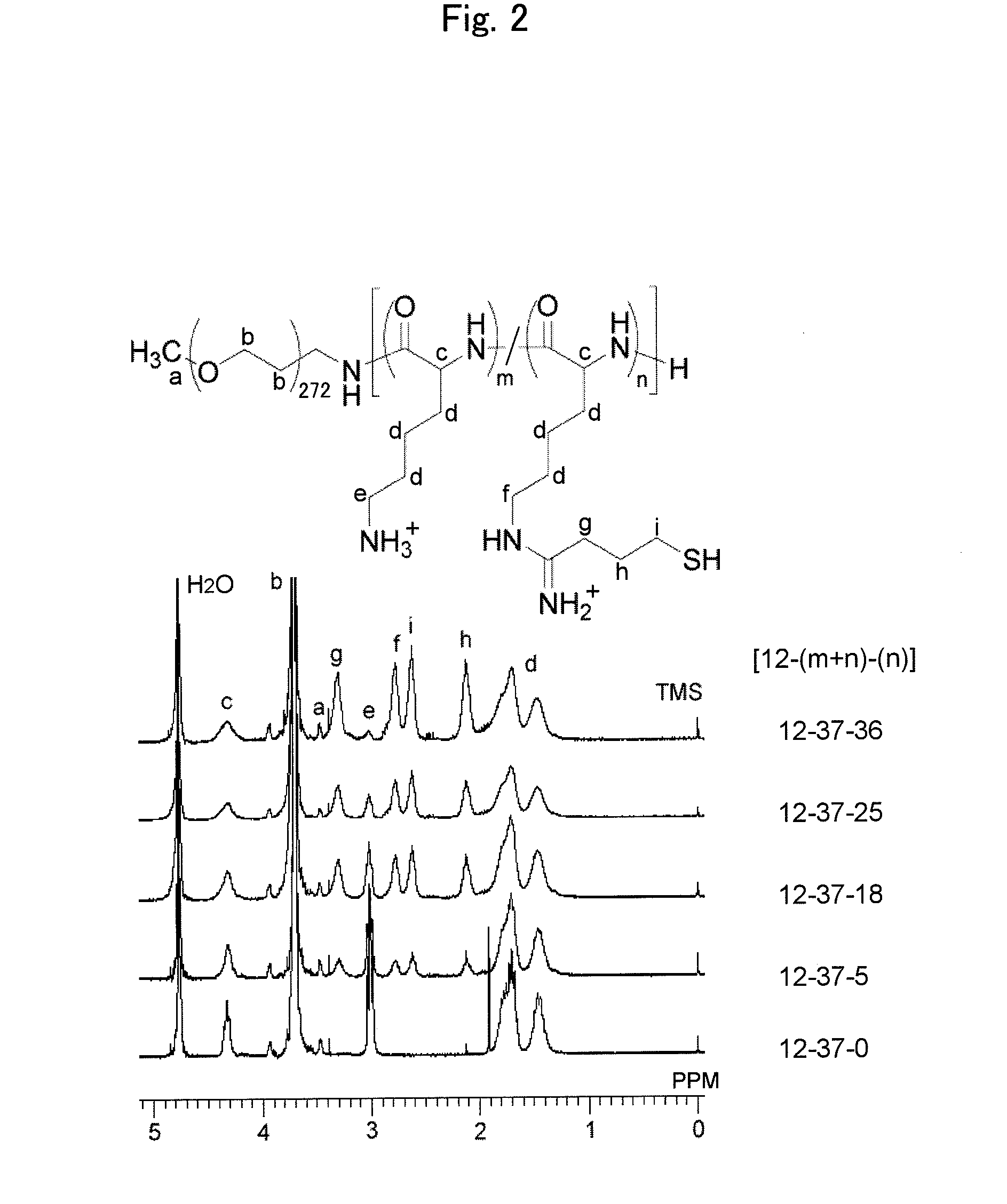ENVIRONMENT-RESPONDING siRNA CARRIER USING DISULFIDE-CROSS-LINKED POLYMERIC MICELLE
a polymer micelle, environmental-response technology, applied in the direction of synthetic polymeric active ingredients, genetic material ingredients, drug compositions, etc., can solve the problems of systemic dds still at the level of laboratory, miles away from practical application, and easy degradation, and achieve excellent sirna delivery ability and monodispersibility. stability
- Summary
- Abstract
- Description
- Claims
- Application Information
AI Technical Summary
Benefits of technology
Problems solved by technology
Method used
Image
Examples
example 1
Materials
[0076]Names, abbreviated names, providers, etc. of compounds, apparatuses, etc. used in the examples will be described below:
ε-benzyloxycarbonyl-L-lysine (Lys (Z)) (Sigma-Aldrich)
n-hexane tetrahydrofuran (THF) (Wako Pure Chemical Industries, Ltd.)
Triphosgene (Tokyo Chemical Industry Co., Ltd.)
[0077]α-methoxy-ω-amino-polyethylene glycol (molecular weight: 12,000) (Nippon Oil & Fats)
Chloroform (Wako Pure Chemical Industries, Ltd.)
[0078]Diethyl ether (Showa Ether Corporation)
Benzene (Wako Pure Chemical Industries, Ltd.)
N,N-dimethylformamide (DMF) (Wako Pure Chemical Industries, Ltd.)
[0079]Trifluoroacetic acid (Wako Pure Chemical Industries, Ltd.)
30% HBr / CH3COOH (Tokyo Chemical Industry Co., Ltd.)
[0080]Lithium chloride (Wako Pure Chemical Industries, Ltd.)
N-methylpyrrolididone (NMP) (Sigma-Aldrich)
Diisopropylethylamine (DMA) (Wako Pure Chemical Industries, Ltd.)
[0081]2-iminothiolane (Wako Pure Chemical Industries, Ltd.)
0.01 mol / L hydrochloric acid (Wako Pure Chemical Industries...
example 2
Evaluation of Retentivity of siRNA-Encapsulated Disulfide-Cross-Linked Polymer Micelle In Blood
[0115]A fluorescently-labeled siRNA (Cy3-siRNA)-encapsulated disulfide-cross-linked polymer micelle was prepared, and it was intravenously administered to a mouse via the tail vein to evaluate its retentivity in blood (stability in blood).
[0116]siRNA similar to the siRNA used in Example 1 (double-stranded; SEQ ID NOs: 1 and 2) was fluorescently labeled with Cy3 according to the ordinary method (Cy3-siRNA). Subsequently, a disulfide-cross-linked polymer micelle in which this Cy3-siRNA was encapsulated (PEG-PLys(SH+) / Cy3-siRNA micelle) was prepared. In this regard, the micelle was prepared in a manner similar to that in Example 1. In this working example, 4 types of PEG-PLys(SH+) products, which respectively have different ratios of 1-imino-4-mercaptobutyl group introduction (ratios of substituent introduction; % substitution) of 14%, 49%, 68% and 97%, were used for preparation of micelle, t...
PUM
| Property | Measurement | Unit |
|---|---|---|
| Electrostatic interaction | aaaaa | aaaaa |
Abstract
Description
Claims
Application Information
 Login to View More
Login to View More - R&D
- Intellectual Property
- Life Sciences
- Materials
- Tech Scout
- Unparalleled Data Quality
- Higher Quality Content
- 60% Fewer Hallucinations
Browse by: Latest US Patents, China's latest patents, Technical Efficacy Thesaurus, Application Domain, Technology Topic, Popular Technical Reports.
© 2025 PatSnap. All rights reserved.Legal|Privacy policy|Modern Slavery Act Transparency Statement|Sitemap|About US| Contact US: help@patsnap.com



